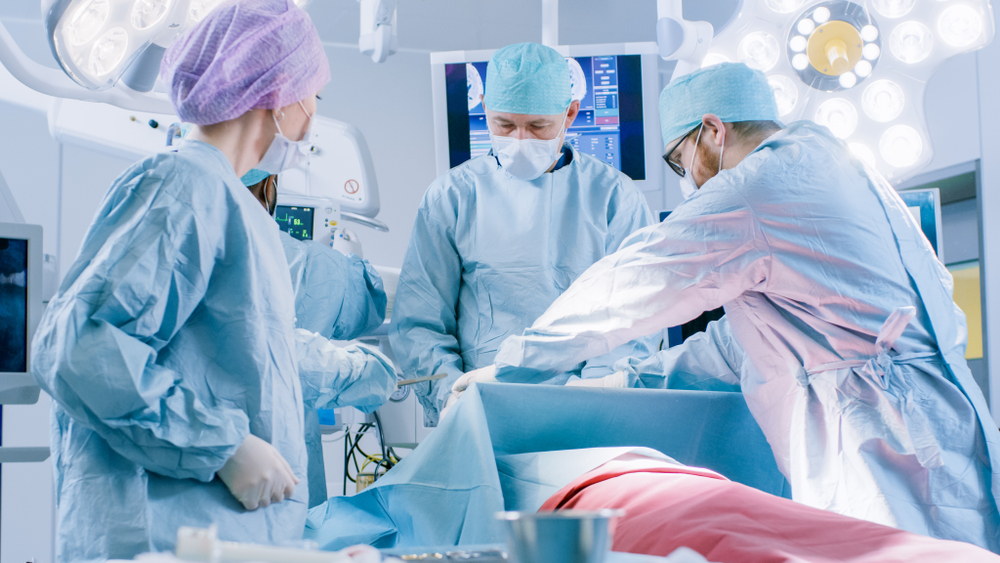Diabetes impacts every system in the body, making it difficult to stay in good health and avoid progressive damage to healthy tissues. High blood sugar levels affect the blood vessels and nerves, elevate the risk of heart disease and stroke, impair kidney function, and cause serious foot problems. Unfortunately, diabetes can also raise the risk of complications after surgery.
The hallmark of diabetes is elevated blood sugar levels that, when poorly controlled, lead to myriad other problems over time. Keeping blood sugar levels in a healthy range usually requires careful attention to diet and exercise, if not medication. Both surgery and anesthesia put physical stress on the body that can result in elevated blood sugar levels for any patient, not just diabetics.
It isn’t always clear exactly why this happens, but the stress hormone cortisol and catecholamines, neurotransmitters released in response to stress, tend to increase after the physical trauma of surgery. These can cause insulin resistance, which means the body needs more insulin to remove glucose from the bloodstream. Even for those successfully managing their blood sugar prior to surgery, the result can be elevated glucose that slows healing and recovery.
The Impact of High Blood Sugar on Recovery from Surgery
Even when only slightly elevated, high glucose levels in the blood impair the immune system’s function and make it more likely that a wound will become infected. Studies show that the risk of infection at the surgical site jumps from 2% to 18% when blood sugar is elevated post-surgery. Hypoglycemia after surgery also elevates the risk of complications such as fluid and electrolyte imbalances, neurological complications, heart and/or lung problems, kidney problems, stroke, or post-surgical death.
Patients with diabetes may also come into surgery with circulation problems that can impede healing and increase the risk of infection. High levels of insulin, which are often seen in Type 2 diabetes in response to the body’s insulin resistance, can make arteries and veins less flexible, restricting blood flow. In addition, diabetics are at higher risk for developing peripheral artery disease (PAD). This restricts blood flow to the limbs, particularly the legs and feet, as arteries become narrowed or even fully blocked by fatty plaques. Without adequate blood flow to the site of a wound or incision, healing slows and the likelihood of infection increases.
Additional Risks to Diabetics from Surgery
Certain medications commonly taken to regulate blood sugar can heighten the risk of complications after surgery. For example, metformin may increase the chances of developing lactic acidosis, a condition in which lactic acid builds up in the blood, after surgery, especially if the patient also has impaired kidney function. Other medications known as SGLT2 inhibitors, or gliflozins, may increase the risk of diabetic ketoacidosis after surgery. This is when the body breaks down fat too quickly, and the liver produces ketones as your body attempts to burn it off. The ketones build up in the bloodstream, making it acidic. Both conditions can be fatal if not treated quickly.
Nonsurgical Care for Diabetic Patients
Some of the most common surgeries diabetic patients face is for wounds on the feet or lower legs that fail to heal, or which become infected. However, the same underlying factors that make it difficult for those wounds to heal in the first place are those that make recovery from surgery to address them riskier for diabetic patients. To promote successful healing and avoid painful surgeries with uncertain prospects for full recovery, restoring blood flow to the affected area through minimally invasive techniques can be a better alternative.
At the Vein & Fibroid Treatment Center, board-certified vascular and interventional radiologist Dr. Saleh specializes in outpatient techniques that can help avert major surgery, including treatments for PAD to potentially prevent premature amputation. These procedures are performed without the need for general anesthesia or large incisions, allowing patients to skip lengthy hospital stays or grueling recovery periods.
If you have diabetes and are looking for care that can help you avoid the risks of surgery, contact the Vein & Fibroid Treatment Center to schedule your initial consultation here.




